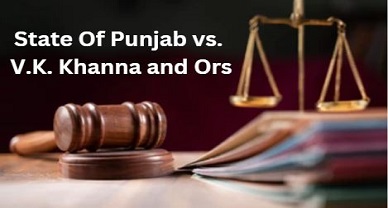Politics as a Concept of Power
LITERATURE REVIEW
BOOKS AND ARTICLES REFFERED
- AN INTRODUCTION TO POLITICAL THEORY BY O.P. GAUBA, FIFTH EDITION, PUBLISHED BY MACMILLAN PUBLISHERS INDIA LTD:
The matter of the content was present in Chapter 13 of this book. The chapter provides a good understanding of the power and its types. The chapter also quotes the sayings of various thinkers and political analysts. Most of the quotes, quoted in this research paper are taken from this book.
- POLITICAL THEORY BY Dr. EDDY ASIRVATHAM AND K.K. MISHRA. PUBLISHED ON DECEMBER 1, 2010 BY S. CHAND:
The matter of content is taken from different chapters of the book. Marxist theory of Power as well as Elitist Theory of Power considered in this article are adopted from this book.
- POWER AND AUTHORITY: DEFENITION, NATURE AND THEORY, ONLINE ARTICLE BY NITISHA PUBLISHED AT POLITICAL SCIENCE NOTES:
The source provides a holistic view of Power and Authority and is like notes created for the preparation of exams rather than an article.
- CONCEPT OF POWER IN POLITICAL SCIENCE PUBLISHED BY UNIVERSITY OF POLITICAL SCIENCE:
It is an online database providing a view of international aspect of Power and Authority. From this article the author adopted various point and jot down them in this research paper.
- BALANCE OF POWER BY UNIVERSITY OF POLITICAL SCIENCE:
It is an online database elucidating about balance of Power and Authority. From this article the author adopted various point and jot down them in this research paper.
ABSTRACT
Power plays a vital role in the development of politics in any nation. Since the beginning of human civilization, Power has been occupying the central position in human relations. The research paper strives to elucidate and cover all major points by analyzing the crucial role that power plays within the realms of politics. The research paper contains the quotes and sayings of various contemporary thinkers to provide a clear understanding of the text and the topic under discussion. Some of the contemporary as well as traditional thinkers like Frederick Watkins, William A. Robson, Michael Curtis, Bertrand Russell, Maclver, Alan Ball, etc.
Through this research paper, the author attempts to define the meaning of power, different forms of power i.e., mainly Political Power, Economic Power, and Ideological power, structure of power as elucidated by distinguished schools of thought, broadly, the class perspective of power by Marxists, elite theory by Elitists, gender perspective of power by feminists, group perspective of power by pluralists, and, constructive view of power by some contemporary thinkers including Mahatma Gandhi, and the differences and similarities among Authority, Power, and Legitimacy. The author also dugs out the historical aspect of power and how it got defined by various foreign and Indian thinkers like Kautilya, Max Weber, etc.
Since power covers an enormous part of political science that cannot be attributed in words, the author attempted to simplify it in conclusion by quoting the values and thoughts of the father of our nation i.e., Mahatma Gandhi.
INTRODUCTION
‘Power’ is considered as one of the critical ideas in political theory. It is said that the idea of power holds similar emanation in the limits of political theory as held by the concept of money inside the domain of economics. It additionally surpasses the scope of, formal institutions to focus on the genuine thought processes and goals of human beings that lie behind all political movement and establishment buildings.

As expressed by Frederick Watkins: “The proper scope of political science is not the study of the state or of any other specific institutional complex, but the investigation of all associations insofar as they can be shown to exemplify the problem of power” (The State as a Concept of Political Science; 1934). Assenting to the statement of Frederick Watkins, William A. Robson said: “It is with power in society that political science is primarily concerned—its nature, basis, processes, scope and results … The ‘focus of interest’ of the political scientist is clear and unambiguous; it centres on the struggle to gain or retain power, to exercise power or influence over others, or to resist that exercise” (The University Teaching of Social Sciences: Political Science; 1954).[1
The centrality of Power in the political theory was kicked in by different traditional thinkers like Hobbes (1588-1679), Machiavelli (1469-1527) and Nietzche (1844-1900) and by modern-day essayists like Max Weber, Lasswell, Kaplan, Catlin, Merriam, Watkins, Morgenthau, and Trietschke.
- Lasswell and A. Kaplan (Power and Society; 1950)have characterized political theory as “the study of the shaping and sharing of power.”Max Weber’s meaning of politics additionally infers attention on power with regards to national as well as worldwide international governmental issues: “Politics is the struggle for power or the influencing of those in power, and embraces the struggle between states as well as between organized groups within the state” (cited in G.E.G. Catlin, Systematic Politics; 1965).
Michael Curtis (in Comparative Government and Politics; 1978) stated: “Politics is organized dispute about power and its use, involving choice among competing values, ideas, persons, interests and demands.” Elucidating the scope on the study of politics, Curtis continues: “The study of politics is concerned with the description and analysis of the manner in which power is obtained, exercised and controlled, the purposes for which it is used, the manner in which decisions are made, factors which influence the making of those decisions and the context in which those decisions take place”.
CONCLUSION
It seeks to diminish all politics to a struggle for power and overlooks other significant purposes for which men have recourse to politics. As Dyke has further elucidated, “Political actors rarely, if ever, struggle for power alone. They pursue other purposes, too. The theory that politics is a struggle for power does not say how much power is desired or what price political actors are willing to pay for it in terms of other values. The thoughtless assumption that all political actors constantly seek a maximization of power at any price is obviously false.”
Author: Kaustubh Kumar, in case of any queries please contact/write back to us via email to chhavi@khuranaandkhurana.com or at Khurana & Khurana, Advocates and IP Attorney.
REFERENCES
- Gauba, O., 2010. An Introduction To Political Theory. 5th ed. MACMILLAN PUBLISHERS INDIA LTD, p.Chapter 13.
- Asirvatham, E. and Misra, K., 1995. Political Theory. New Delhi: S. Chand.
- Nitisha, n.d. Power And Authority: Definition, Nature And Theory. [online] Political Science Notes. Available at: <https://www.politicalsciencenotes.com/articles/power-and-authority-definition-nature-and-theory/795> [Accessed 2 January 2021].
- University of Political Science. n.d. Concept Of Power In Political Science – University Of Political Science. [online] Available at: <https://www.politicalscienceview.com/concept-of-power-in-political-science/> [Accessed 2 January 2021].
- University of Political Science. n.d. Balance Of Power -. [online] Available at: <https://www.politicalscienceview.com/balance-of-power/> [Accessed 2 January 2021].
[1] University of Political Science. n.d. Concept Of Power In Political Science – University Of Political Science. [online] Available at: <https://www.politicalscienceview.com/concept-of-power-in-political-science/> [Accessed 2 January 2021].

